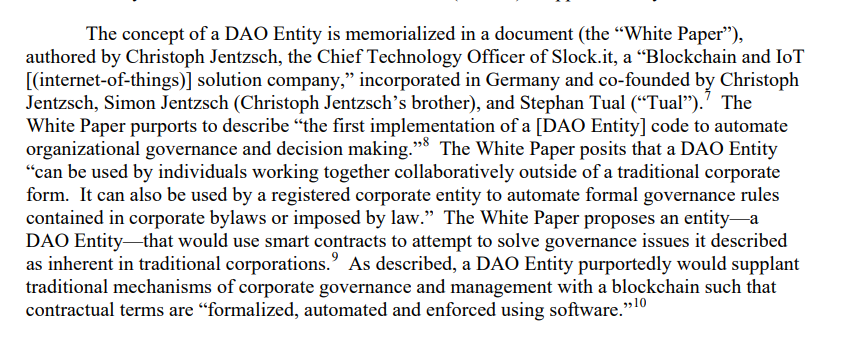- TruthLabs claims Ethereum founders had direct involvement in the 2016 DAO hack.
- Christoph Jentzsch, a key Ethereum developer, allegedly interacted with the Blockchain Bandit before the hack.
- Ethereum developers reportedly had access to crucial wallets linked to suspicious activity.
- Accusations suggest a connection between the Ethereum Foundation and the 2016 Gatecoin Hack.
- Calls for law enforcement intervention have intensified amid growing allegations.
TruthLabs, which is known for its blockchain forensics work, has set off a firestorm on social media with disturbing allegations against the founders of Ethereum. According to TruthLabs, also known as @BoringSleuth, some of Ethereum’s core developers were not just passive observers, but active participants in the infamous 2016 DAO hack.
The DAO, a decentralized autonomous organization, had raised a monumental $150 million USD in ether (ETH) before falling victim to a devastating hack – back in 2016.
Christoph Jentzsch, listed among the original five founders of Ethereum, is at the heart of the controversy. As TruthLabs points out, Jentzsch had the keys to the Multisig wallet that launched the DAO.
What’s more, another Ethereum developer with access to the Ethereum Foundation’s wallets reportedly interacted with the Blockchain Bandit’s wallet before the hack occurred.

Suspicious Wallet Activity
One of TruthLabs’ most controversial claims involves the Ethereum Foundation wallets.
As TruthLabs’ says, the wallet that first interacted with the Foundation’s wallet as an owner had also interacted with the Blockchain Bandit’s wallet, raising questions about internal collusion.
This wasn’t a random wallet; this was a wallet run by a core Ethereum developer with considerable authority.
Christoph Jentzsch’s involvement goes deeper. TruthLabs alleges that he sent tokens to the Blockchain Bandit before the Bandit was publicly identified as a thief.
The Blockchain Bandit is an as yet unknown individual or group who emptied the wallets of over 10,000 cryptocurrency users in 2015 and 2016. [1]
Such actions cast a long shadow over Jentzsch, suggesting more than an “unfortunate coincidence” or “innocent mistake”.
The Gatecoin Hack Connection
Adding fuel to the fire, TruthLabs recalls a previous investigation linking the Ethereum Foundation to the 2016 Gatecoin hack.
This hack occurred mere weeks before the DAO’s launch, hinting that these events might be interwoven in ways previously unimagined.
According to TruthLabs, the Ethereum Foundation’s possible connection to this hack provides a chilling backdrop to the DAO debacle.
The timing of these activities is too precise to ignore.
If the Ethereum Foundation had direct or indirect roles in both the Gatecoin and DAO hacks, it raises severe ethical and legal questions. Why hasn’t major regulatory body like the SEC or DOJ stepped in?
Calls for Action
TruthLabs’ claims have caused a stir among cryptocurrency enthusiasts and watchdogs. They want the Department of Justice, Financial Committee, and FBI to investigate. TruthLabs says that SEC Chairman Gary Gensler won’t act, so other authorities must step up.
In another twist, TruthLabs mentions the involvement of an “unSpecial Agent Bridge” and stolen Mt. Gox Bitcoin, possibly linking these assets to Ethereum’s largest whale. If these claims are true, the web of deceit could be far more extensive than initially thought.
One can’t help but feel betrayed. These revelations, if proven true, tarnish the trust many have placed in Ethereum and its architects. This isn’t just about lost funds. It’s about the integrity of the blockchain space.
Bottom Line
The 2016 DAO hack and its aftermath are now seen in a new light. Accusations against Christoph Jentzsch and other Ethereum developers paint a grim picture of internal misconduct and dark money trails. Suspicious wallet activities, coupled with ties to the Gatecoin hack, call into question the credibility of Ethereum.
With more and more people asking for legal action, it is up to the regulators to decide what to do. Will they take action, or will these allegations just disappear?
The community is waiting to see what happens. The stakes are high, and the search for the truth is far from over.
LATEST POSTS
- Grass Unveils New App Store Amid Anticipated User Surge
- Solana Memecoin Scam Exposed: Martin Shkreli Admits Fraud
- VanEck Launches First Bitcoin ETF on Australian Securities Exchange
- NFT Artist Sues Elon Musk’s X Corp Over Account Suspensions
- Daddy Tate Memecoin Skyrockets Amid Insider Trading Concerns
Previous Articles:
- Grass Unveils New App Store Amid Anticipated User Surge
- Solana Memecoin Scam Exposed: Martin Shkreli Admits Fraud
- VanEck Launches First Bitcoin ETF on Australian Securities Exchange
- NFT Artist Sues Elon Musk’s X Corp Over Account Suspensions
- Daddy Tate Memecoin Skyrockets Amid Insider Trading Concerns
